Latest News
Kitchen Chat and more…
Kitchen Chat and more…
Be Mindful of the Breaks…
In the Apocalypse, which describes a world in downfall, there are sometimes sudden moments of calm. A power that is stronger than all destruction brings the storm of annihilation to a standstill. As a spectator, you have just a moment to catch your breath before the irrevocable demise of the outer world rushes on. The course of events is literally stopped by a command from on high: “Do not harm the earth or the sea or the trees, until we have set our seal on the foreheads of those who serve our God.” (Rev.7:3)
In an apocalyptic world such as ours, time is compressed—events on the world stage take place at incredible speeds. And not only on the grand stage—our own lives too are usually breathtaking.
And yet, when you develop a sense organ for the quality of the time, you discover that in the midst of all the rushing and stress life also creates brief breathing spaces. The trick is to observe these moments consciously, to briefly step out of the maelstrom of time, and to catch your breath before life rushes on again. At such moments you are, as the painter Picasso once expressed it, “secure in insecurity.”
What or who is it that bestows such moments on us? Someone who was able to look behind the screen of time, behind the veil of the perishing earth, once expressed it with the words:
“Be mindful of the breaks, the brief moments destiny often unexpectedly bestows on you. In the same way, the Coming One will also one day come.” (Friedrich Doldinger)
–Rev. Bastiaan Baan, November 22, 2020
Poverty and Wealth (Rev.3:14-22)
A well-known theologian of the 20th century once said: “God feeds us with hunger and quenches us with thirst.” That is an eloquent and partly true saying, but this truth is usually overshadowed by another reality: we suppress our spiritual hunger with all that chains us to the earth. And we disguise our thirst for the spirit through all that benumbs the mind. That mixture of materialism and intoxication, of yearning for the earth and flight from the earth, is usually called prosperity. And the more prosperous we are in this outer sense, the poorer in spirit we are likely to become. From the point of view of the angels we are, as stated in the Book of Revelation, “…how pitiful, pathetic, and poverty-stricken … how blind and how naked.” We have become poor as church-mice. What do we have that we can give to the spiritual world?
And yet, this is being asked of us in the contradictory words: “Therefore I counsel you to obtain gold from me which is refined by fire, so that you may become rich again…” How can anyone obtain gold who is poor?
Indeed, the only thing we can give to Christ is our poverty. The only things with which we can feed Him and quench Him are our hunger and thirst. But whoever becomes a beggar for the spirit, who ardently longs for His presence, on those can He bestow His wealth.
For He is Himself as a beggar: a human being who knocks on our door, who asks and implores us to open—to share His meal with us.
–Rev. Bastiaan Baan, November 8, 2020.
You Have the Name of Being Alive… (Rev. 3:1)
When we are tired after a busy workday and look back on what we have done, we are likely to feel the heavy burden of all the obligations we had to fulfill. That is because our pace of life does not allow us to stand still. We run from one obligation to the next. And when we are not running, we get left behind by the facts. Our hectic world cannot be compared with the time when daily life consisted of work and prayer: ora et labora. When prayer started to disappear from daily life, the motto became: work and relax—in which relaxing usually means: do nothing, do not think, look for recreation. In our time there is a new, grim perspective: work and burn out. In a world that roars past at a breathtaking speed we run the risk of being driven on until we fall down. How can we stand up in such a world?
Sooner or later we will be facing a moment when we realize: this is the last day of my life. Would we then still think the same way about all the so-called obligations of our existence?
From the perspective of eternity, everything looks different. Much of what on earth looks necessary becomes insignificant, or even less. For the spiritual world we humans are like walking dead: “You have the name of being alive, and you are dead.” For our narrow-minded, utilitarian thinking, to pray or to sit before an altar is a waste of time: we are doing nothing, producing nothing, earning nothing.
But for the spiritual world things are different. In prayer, at the altar, our mortal existence is called to life. There Christ invests our perishable being with the white robe of His pure life—that we bury not our eternal being for the sake of our temporal.
–Rev. Bastiaan Baan, November 1, 2020.

